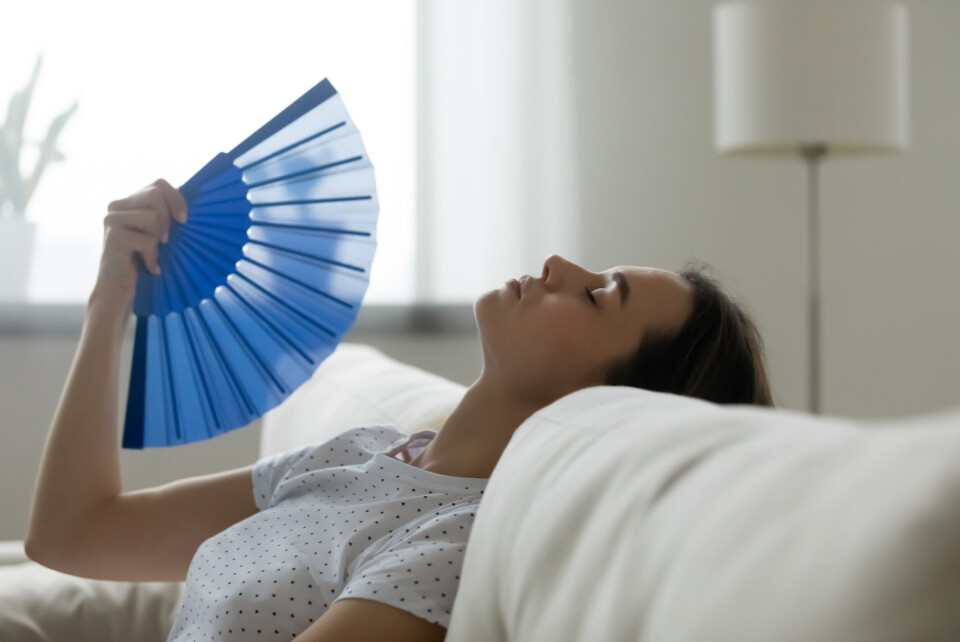-
Dordogne residents face aftermath of flood damage as more rain forecast
Residents are advised to stay alert
-
Cars submerged, 1,100 without power: Floods hit south-west France
Three departments are on alert for flooding on Easter Monday after weekend of heavy rain
-
How to check whether you have been issued a speeding fine in France
Fines can be sent anytime after an incident
France heatwave tips: How to sleep, keep cool and stay healthy
Regulating your body temperature will help lower the risk of heatstroke and other illnesses

In recent years some parts of France have seen temperatures reach over 40C with around a quarter of French departments regularly facing a heatwave warning of some kind.
We have prepared some tips on how to stay as comfortable and healthy as possible.
How to sleep – without the help of air conditioning
Even if your home has an air conditioning unit, many people are reluctant to use it for extended periods, especially overnight.
If you have a smaller fan, this could be used, but you may also be reluctant to keep it plugged in overnight.
One good option is to take a cool or lukewarm shower to help your body cool down before sleeping.
“The most important thing is to lower your body's internal temperature in the evening [before trying to sleep],” said Marie-Françoise Vecchierini, a sleep specialist from the Hôpital Hôtel Dieu in Paris.
You should make sure not to take a freezing cold shower, however, as your body will react by trying to raise its internal temperature to combat the sudden cold.
Other tips include sleeping on damp sheets – perhaps uncomfortable but it will help cool your body down.
You can also keep a brumisateur or hydrating spray by your bed.
You should wear loose-fitting pyjamas, cotton if possible, and your drinks should be cool but not ice cold – again, this helps to regulate body temperature.
Eating lighter dinners packed with fruits and vegetables at least two hours before sleeping will also help you fall asleep better than eating rich or heavy foods close to bedtime.
How to keep yourself and others healthy
Drinking cool water, avoiding alcohol, keeping your house cool, and avoiding strenuous physical activity will all help reduce the danger of your body overheating.
You should check in on any vulnerable people you know at least once per day, to make sure they are okay.
You can sign vulnerable people up to the registre canicule (heatwave register) via your local mairie. Local authorities will then telephone during the heatwave to see if they require any help or emergency assistance and remind them of ways to stay cool.
If the person does not reply, authorities can contact the police or fire department for an in-person check.
The service is available for people who live at home (although they do not have to be living alone) and that are either over 65, over 60 but declared unfit to work, or disabled.
Spotting signs of heatstroke
One particular health concern during heatwaves is heatstroke.
Although everybody is susceptible to heatstroke in this weather, it is more likely in young children and older people.
Some general signs of heatstroke can be similar to dehydration and include:
- Immediately sweating when drinking
- Not urinating in five hours or the urine being dark
- Cramps
- Nausea
- Fatigue
- Incoherent speech
For younger children, oversleeping, difficulty waking up, unusual fatigue and irritability are also signs.
They may also have dry diapers and urinate frequently.
Signs such as rapid breathing, a pale appearance, and sunken and/or dark-rimmed eyes also indicate a heat stroke in a young child.
Older people may not notice they are thirsty – due to a loss of sensation in their mouth – so should be regularly prompted to drink water.
Checks on older people with memory problems should be even more vigorous, as they may forget to drink or keep cool even during a heatwave.
In cases of heatstroke, you should try to cool a person by removing all unnecessary clothing, giving them cool (not ice cold) water to drink (or a sports/electrolyte drink) and cooling their skin by fanning them or dabbing it with cool water.
If signs are severe, you should immediately call the emergency services.
How to keep cool
In general keeping yourself cool throughout the day will help you sleep better at night and stay healthy.
One way to do this is by keeping your house cool – closing shutters and windows throughout the day, and then airing your house at night when the external temperatures are cooler than the internal ones.
Keeping doors open will increase air circulation in your home, keeping more rooms cooler, and you should limit turning on appliances that cause rooms to heat (TVs, computers, video games consoles, but also hoovers, ovens and hobs).
You can buy indoor plants with large green leaves, and mist them often, to help cool your house down.
Read more: How to keep your house cool in the high heat of the French summer
You should drink regularly and not wait until you are thirsty. You should stick to water.
Keeping your body cool, dampening it by splashing your skin with water or using a cool-mist humidifier / taking cool showers.
If you need to go outside, you should do so early in the morning or in the evening, avoiding lunchtime and afternoon when the sun is highest and the temperatures highest.
If you go outside, even for a short walk, take water to stay hydrated.
Check local weather reports for your area to see if a heatwave warning is in place. If so adapt your behaviour to keep yourself protected.
Read more: Tips on how to stay cool in France’s heatwave
























